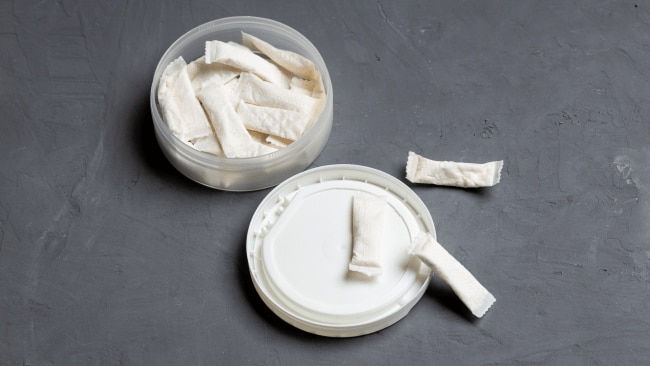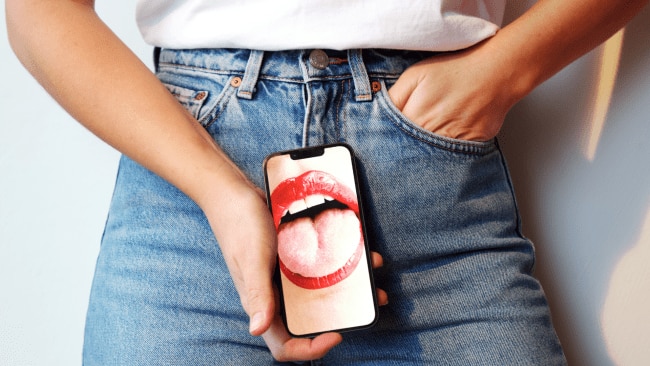How Maria Thattil learned she could carry the ovarian cancer gene
You have to be your own biggest advocate
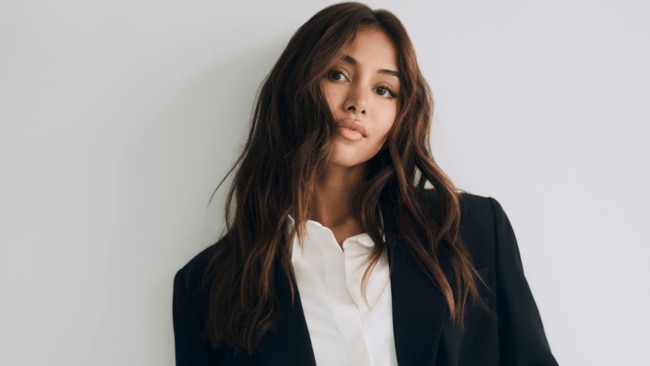
Lifestyle
Don't miss out on the headlines from Lifestyle. Followed categories will be added to My News.
In this article
Maria Thattil opens up about self-love, imposter syndrome and self-belief
Why she embarked on a radical career change
Finding out she could carry the ovarian cancer gene
The media personality and 2024 White Shirt Campaign advocate opens up about radical career change, self-criticism and how she learnt to love herself, plus the moment she realised she could carry the ovarian cancer gene.
You have a degree in psychology and master’s in management. Then, in 2020, you quit the business world to compete in the Miss Universe pageant. Why the sudden shift?
After school, I completed my degree in psychology and I loved it. I went back to do a master's degree in management which led me to a corporate career working with people in business. I started working in that corporate space at the same time I started posting content online and really loved the ability to share messages online – it was really creative and fun. I was talking about pursuing a PhD and was actually nominated for a scholarship to Harvard, but I’d spent five years at university and was all studied out. So I decided to take a punt on Miss Universe. The skills I learnt at uni were so transferable. I used a lot of academic research to write my book, Unbounded. Same with the management principles I learned, I use these now as a business woman myself and have built my own career on them. So I love that I spent that time learning and I get to apply it in very different ways now.
And if you were to have done your PhD, what would it have been?
I think it would've been something to do with gender studies. I wrote a piece on equality for women in the workplace back in 2016, advocating for sex work to be regulated (because sex workers are not protected and they should be). My professor at the time really encouraged me to consider doing a PhD and I seriously considered it when I was nominated for the scholarship, but I decided to work instead. There are many different ways to have an impact in that space and I think I'm doing it in a way that's more true to me than if I went back to school.
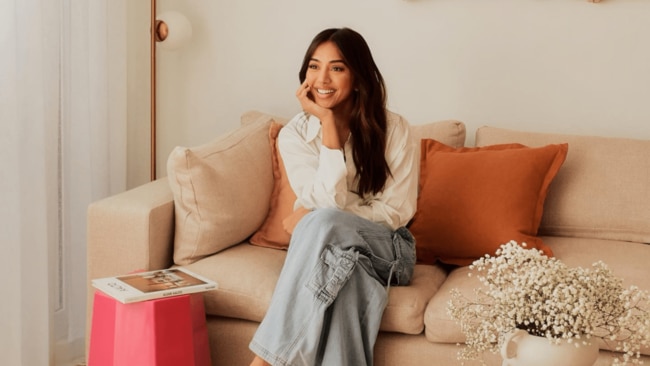
You came out as bisexual on national TV [Thattil was on I’m A Celebrity...Get Me Out Of Here!] after secretly dating women. What sparked the courage to be true to your sexuality?
I think I was still figuring it out. I was going on dates privately because I didn’t want people to know. I wasn't ready to have that sort of thing in the headlines before I understood it myself. But on the show, I was competing for [LGBTQIA+ youth charity] Minus18 on behalf of my brother [who is part of that community], and the more I talked about the charity, the more I realised I was doing a disservice by not being honest. It happened organically in a moment with a friend on the show. And I didn't bring it up with the producers for four days after that. It just felt like the most natural way to put it out there.
In light of all of this, and a large part of your last five years having been on a public stage, how do you safeguard your mental wellbeing and autonomy, particularly in the online world?
I just love a good block and delete. I've realised it's just as important to protect my online space as it is to protect my physical space at home. Believe me, I still experience homophobia and criticism, I just don't hold a space for it. And at the end of the day, I cannot control the internet and what people say and do but I can protect my space and I’m very liberal with how I do that.
So boundaries are a big thing for you?
Big thing for sure. And I'm very conscious of how much I do share about my personal life. Don’t get me wrong, I'm a very open book. I will talk about everything from my abortion to sex to my family history with ovarian cancer. I'll talk about everything. But it doesn't mean that just because I give an inch, people are entitled to take a mile. And so, things like my relationship, certain family things, I keep it sacred and intimate.
So you had an abortion when you were just 21 years old. What was that experience like for you?
Abortion is healthcare. It is a fundamental human right. I had one when I had an accidental unexpected pregnancy and was absolutely not in a position to become a parent. And I know that if I did not have access to the appropriate healthcare, I would've fallen into cycles of poverty and adjacent mental health issues. I don't actually know who I'd be today and how I would've fared if I was forced to go down a path I absolutely wasn't ready to follow.
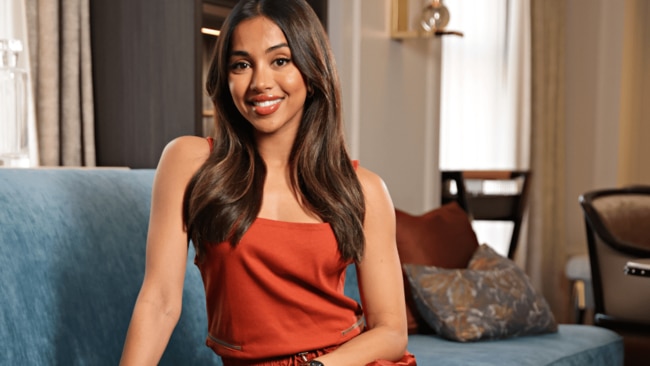
What was it like growing up in Australia with a South Asian heritage?
I grew up between two different cultures when there wasn’t much representation of different ethnicities or sexualities. In my 20s [Thattil is 31], I tried to chameleon myself to fit in certain circles. I felt angry for a long time that I ever closeted myself or stopped eating Indian food. I think my anxiety and self-doubt stemmed from early experiences with racism. Things shifted when I realised being Australian isn’t one thing, and being Indian isn’t one thing.
The same happened with coming out. Once I stopped trying to fit into a box, I was finally able to belong. Everything I experienced made me the woman that I am today. So I wouldn't change a thing, but ironically, I want to change things for future generations.
You are wonderfully self-aware – do you ever struggle with impostor syndrome?
I’m a very self-aware queen, but of course I still struggle. My whole life has changed in the last three years. I’ve published a book, given a TED Talk, started acting, built a media career, bought a house and done it all on my own. But I still started to feel like I wasn’t good enough. Anytime I had a moment of stillness or my week was quiet, I’d get anxious and self-critical. So much of my worth was wrapped up in material achievements.
Now, to me, being successful means doing work that’s purposeful. If I have a roof over my head, food on the table and people to love, I have everything I need.
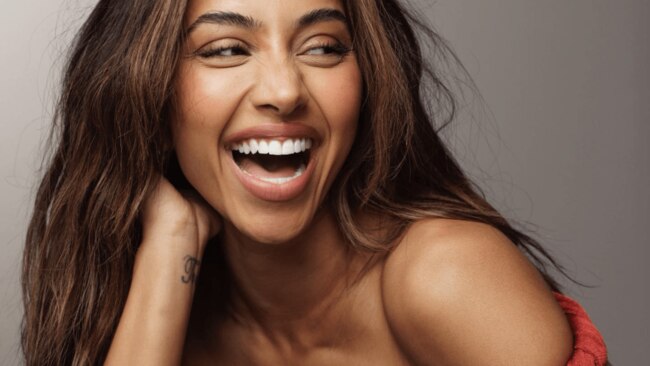
What does success look like to you now?
It's so interesting you asked me that because I've been working through exactly that in the last few months. I've published a book and given a TED Talk and I've started acting, I've built a media career, I've bought my own house. And I did it all on my own, yet I still felt like I'm not good enough.
So much of my self-worth was wrapped up in those material achievements. Anytime I had a moment of stillness or if my week was quiet, I would get anxious and self-critical. The mental spiral that would occur was really unhealthy.
It's not successful to think you need to have and acquire all these things. And so, what I started working through with my therapist was realising where that need to achieve came from. And again, it stems from a scarcity mindset born out of early experiences with racism. And so, at the start of this year, I spent a lot of time working through loving and accepting myself.
I guess now, being successful means doing work that's purposeful and impactful. But so long as I have a roof over my head, food on my table, and people to love, I quite literally have everything that I need.
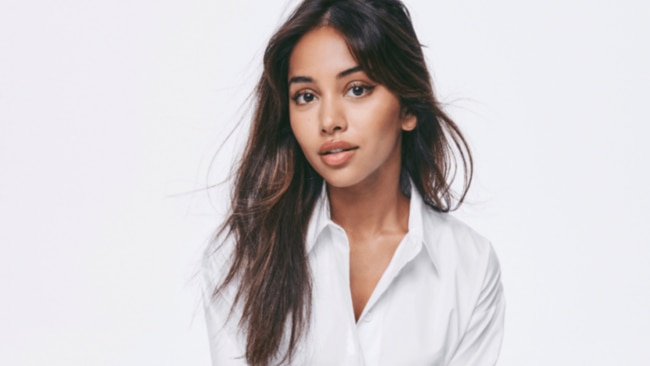
You’re an ambassador for the 2024 Witchery White Shirt campaign, which has raised over $16 million since 2008 for the Ovarian Cancer Research Foundation (OCRF). Why is this cause so close to your heart?
I only recently learnt that I could carry the [ovarian cancer] gene and that’s terrifying. My great-grandmother passed away from [it] and my grandmother had a rare gynaecological cancer. It’s crazy that of those who get it, only 49 per cent survive. It's the most lethal of all the reproductive cancers and yet it's one of the most overlooked. Research is the only way we can change [that] and Witchery donates 100 per cent of all the proceeds from every campaign white shirt sold to the OCRF. But even with these contributions, we still have a long way to go.
The biggest thing I’ve learned in my experience with my family is how important it is to check in on my own reproductive health and to stay on top of my tests. Cervical screenings don't supplement an early detection test and accessibility matters. Keeping the conversation going is a responsibility we all share, to demand better for ourselves and millions of women around the world.
Rapid fire round
I can’t start my morning without: Matcha oat latte
I’m currently reading: A Therapeutic Journey by Alain de Botton
My go-to podcast: Super Soul Sundays by Oprah
My favourite way to wind down: With a spicy Mexican Pizza watching Netflix on the couch
I’m currently watching: Gilmore Girls
My guilty pleasure: Eating a McDonald’s large chicken nugget meal in my car, watching cartoons on YouTube
My #1 skincare ritual: SPF
One person you’d love to meet: Oprah
Originally published as How Maria Thattil learned she could carry the ovarian cancer gene

